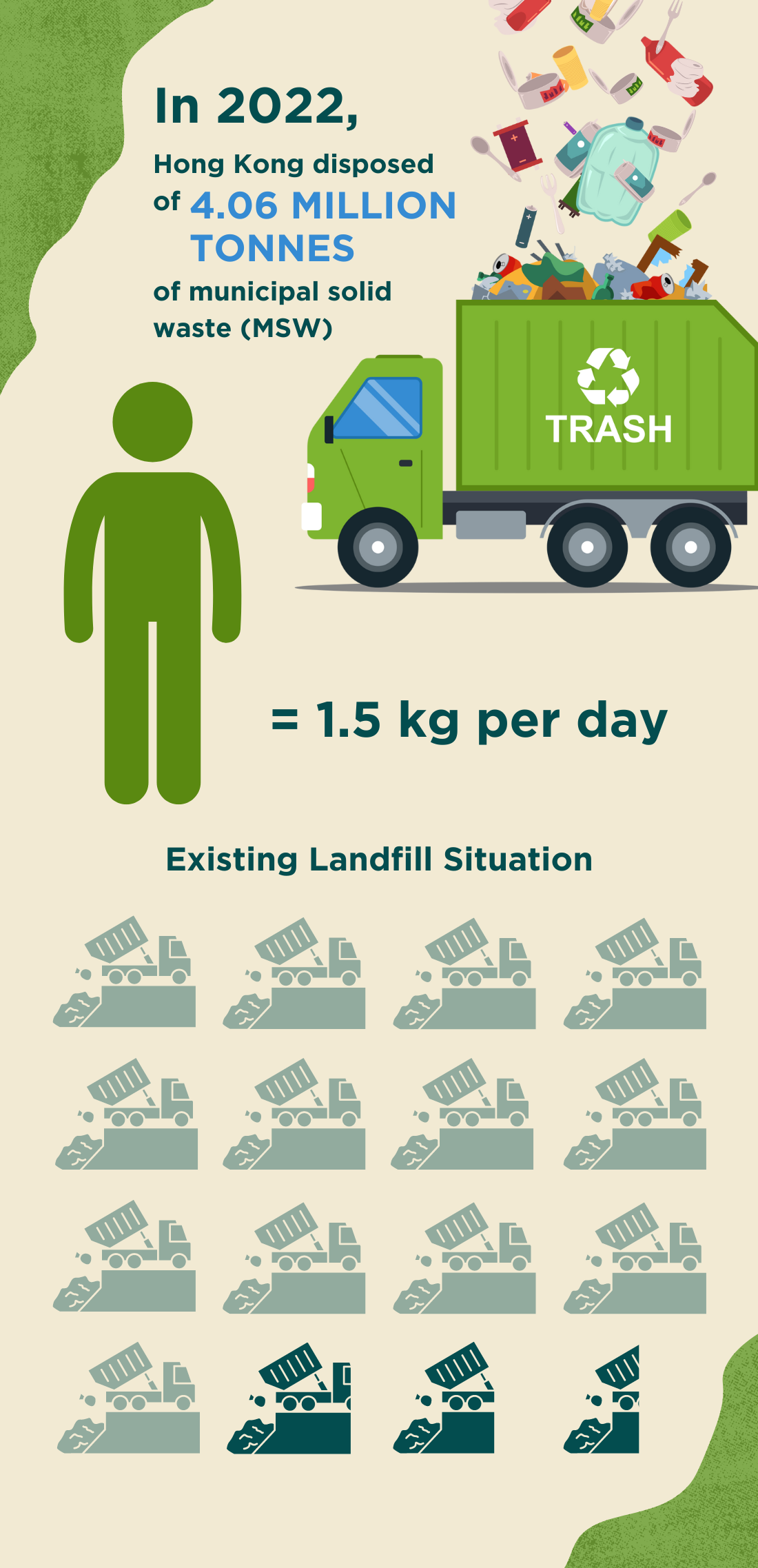HK News
Hong Kong's Municipal Solid Waste Charging Scheme: Whose shoulders should Waste Responsibility rest on?

Hong Kong Municipal Solid Waste Charging Scheme slogan

Figure 1. Infographic for Hong Kong waste situation in 2022 1
Over many years, Hong Kong has been struggling to decrease the amount of solid waste generated (Figure 1). To tackle this issue head-on, the introduction of the Municipal Solid Waste Charging Scheme in Hong Kong aims to promote proactive waste reduction and recycling.
Starting in April 2024, the scheme will initially be implemented in government offices and then extended citywide in August 2024. Its objective is to enable efficient collection of recyclable materials and reduce Hong Kong’s reliance on landfills. Drawing from successful unit-charging programs in Japan, the pay-as-you-throw schemes successfully reduced the amount of residual waste generated by 20-30%.2 Combined with other measures, such as food waste collection, waste plastic reverse vending machines, and waste paper collection and recycling, the scheme is expected to bring about a dramatic reduction in waste generated locally, ultimately working to establish a circular economy and achieve “Zero Landfill” as outlined in the Waste Blueprint for Hong Kong 2035.3
By assigning a real cost to individual actions, the scheme shifts the responsibility of waste management onto the polluters themselves (i.e. “polluter-pays principle”). The scheme aims to create a direct link between waste generation and its financial implications to encourage consumers to become more conscious of their consumption habits and make better-informed decisions.
Although the MSW charging scheme may seem to impact end-users only, its ripple effects extend throughout the product supply chain. An essential aspect of the scheme is its reliance on systems thinking by recognizing that a change at one end of the supply chain can have far-reaching effects throughout the system. As consumers become conscious of the financial burden of waste charging, particularly from excessive packaging and wasteful products, they could demand more environmentally friendly alternatives which would force producers and suppliers to adapt accordingly to meet the demand for greener options, causing changes beyond just the end-of-life stage.
The polluter-pays principle and consumer-led shift in behavior could play a crucial role in driving positive change in local waste management strategies. Studies have demonstrated that a committed minority can trigger a tipping point, shifting established social norms.4 The belief is when more embrace sustainable waste management practices, like choosing products with less packaging and recycling properly, individuals can be instrumental in creating a society where sustainable behaviors become increasingly prevalent.